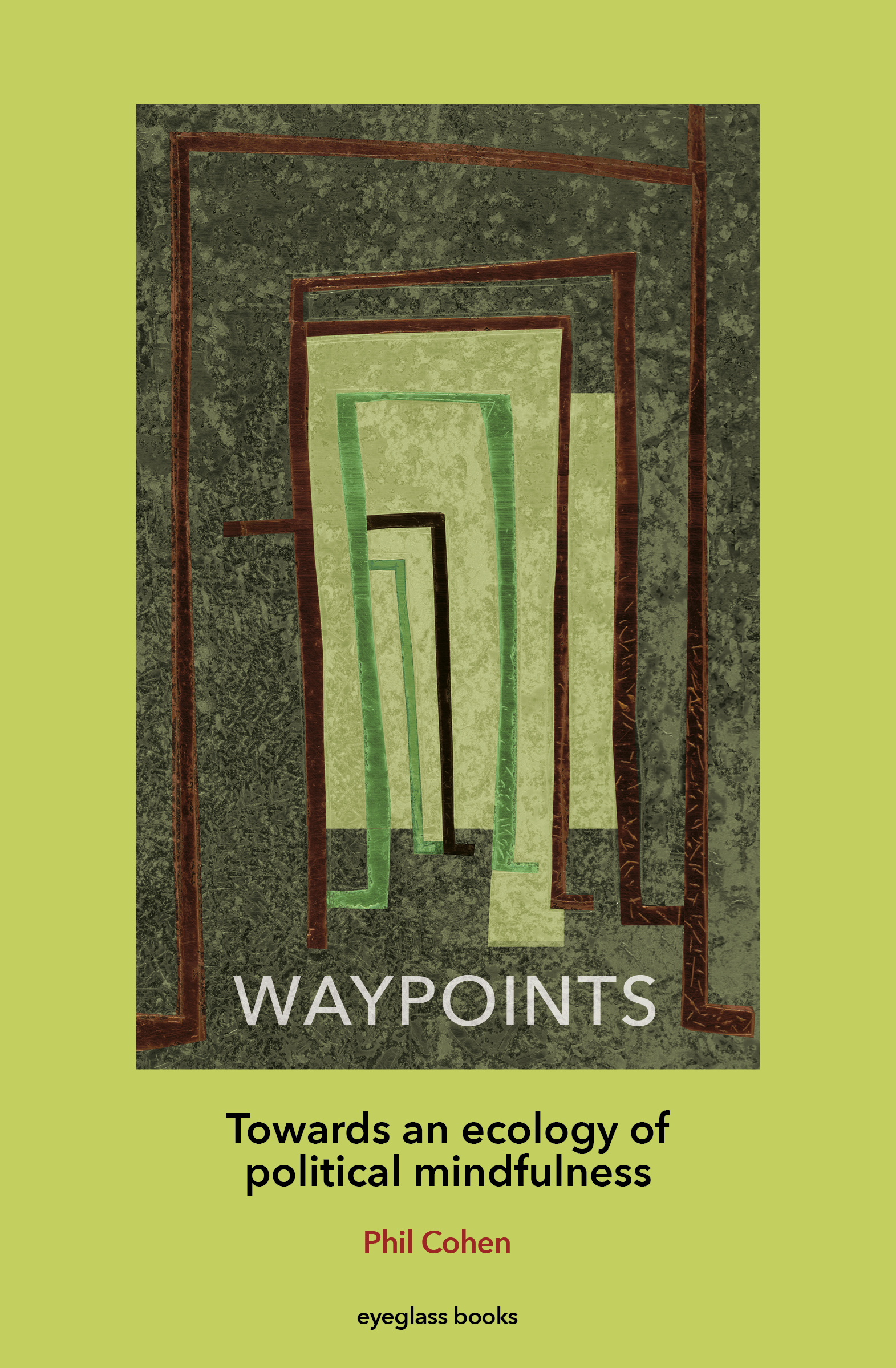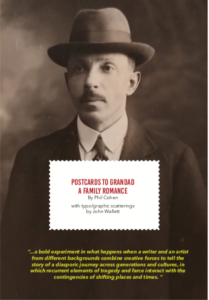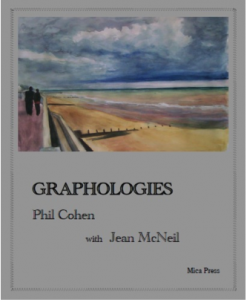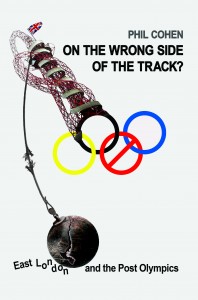In praise of clutching at straws or reasons to be cheerful in 2014
New Year is traditionally the time to take stock, and to look forward to the future. It is a time to search for new principles of hope, or renew old ones, and to strengthen our commitment to make the world, or at least that little bit of it we have some influence over, a better place. In a period of rapidly falling expectations, when young people expect to be less well off in almost every respect (except longevity) than their parents, this can be a daunting prospect. Time then to put on the famous Ian Dury track and listen to his reasons to be cheerful:
Summer, Buddy Holly, the working folly
Good golly Miss Molly and boats
Hammersmith Palais, the Bolshoi Ballet
Jump back in the alley and nanny goats
A bit of grin and bear it, a bit of come and share it
You’re welcome, we can spare it – yellow socks
Too short to be haughty, too nutty to be naughty
Going on 40 – no electric shocks
Health service glasses
Gigolos and brasses
round or skinny bottoms
Take your mum to Paris
lighting up the chalice
Wee Willy Harris
Cheddar cheese and pickle, the Vincent motorsickle
Slap and tickle
Woody Allen, Dali, Dimitri and Pasquale
balabalabala and Volare
Something nice to study, phoning up a buddy
Being in my nuddy
Saying hokey-dokey, Sing Along With Smokey
Coming out of chokey….
It is an impressively rhymed list from someone who suffered from polio as a child and had to put up with being called a ‘spastic’ by his schoolmates but whose in-your-face attitude and music refused to trade off the sentimental image of disability. Even if we don’t have Dury’s resilience and courage, it should still be possible to make an inventory of things – and people – that make life worth living even in the face of bereavement, disappointment and the many other sources of sadness that are our human lot. But in a society where narratives of aspiration have become so highly individualised, where everyone is supposed to be the author of their own lives, and where ‘loser’ is the most familiar and dreaded playground taunt, the resources needed to withstand life’s after blows, overcome setbacks and sustain protracted struggles have been increasingly hollowed out. With nearly 50 million prescriptions for anti-depressants issued in the UK last year and with drug and alcohol abuse having reached epidemic proportions, it is clear that the ‘fix’ of consumer capitalism, the forms of satisfaction or happiness it is supposed to promote, are just not working for a majority of the population. Various forms of religious faith have always filled this vacuum, and their appeal has intensified but progressive politics which hitherto might have articulated the longing for a better life remains subject to widespread disenchantment. A New Year poll conducted for the Guardian showed that anger at the failure of the political class to deliver on its promises is especially concentrated amongst the younger generation and is directed against politicians across the ideological spectrum.
If the Left has been unable to exploit this factor, it is perhaps because its own political culture has been eroded. Now that the onward march of Labour has been halted a long way short of New Jerusalem, the Great Boot in the Sky, always and already waiting to crush the People as soon as the flag of liberty, fraternity and equality is raised, has assumed ever larger proportions in the collective imagination of socialists. Too many lefties have become immiserabilists, doom mongers and addicted to bad news. They scan the media for atrocity stories, and get a perverse satisfaction from accounts of human rights abuses and the like.
New Year is also the traditional time for more up beat Lefties to indulge in some ritual straw clutching. But now that straw clutch bags have become must-have accessories for people on modest incomes who have despaired of ever being able to afford Gucci, the practice has gone somewhat out of fashion. Certainly we do not, as the English cleric John Prime first put it in his Fruitful and Brief Discourse of 1583 ‘as men redie to be drowned, catch at every straw’. Instead we prefer to change the metaphor: to whistle in the dark, look for light at the end of the tunnel, and in any number of proverbial, or adverbial, ways look on the bright side of life. We may be on the Titanic and headed for the shipwreck of global warming, but if jumping ship is not an option, then at least some kind of interior re-design is still on the cards. In fact a good part of the cultural left has adopted a purely rhetorical radicalism, a form of aesthetic subversion in which political action has become a mere decorative backdrop to gestural revolts. Ironically the French Situationists, whose aim was to ‘ at last create a situation in which there is no turning back’ spawned a recuperated version of their manifesto in which a multitude of artists create the spectacle of dissent as a means of accumulating cultural capital for themselves. Meanwhile global capitalism continues to consolidate its powers of dissemination.
Antonio Gramsci, who lived through the comprehensive defeat of the Italian Left by fascism, and had every reason not to be cheerful as he wrote his Prison Notebooks, nevertheless warned against both defeatism and fatuous forms of wish fulfilment. Instead he famously suggested we should practice ‘pessimism of the intellect and optimism of the will’. Or to put it in a more contemporary idiom, we should always be aware of the worst-case scenarios, and confront the world as it is rather than as we would like it to be, but at the same time we should always explore the limits of the possible and never stop exercising our sociological imagination, experimenting with alternatives and dreaming of a better world.
Which, strangely enough, brings us back to straw. It may be no substitute for a life jacket if you happen to fall over board but it is a singularly versatile material. It can be used for fuel, for livestock bedding and fodder, for thatching, weaving and basket-making. Straw mattresses may not be very comfortable to sleep on, but they are better than a hard floor. Today the use of straw as a carbon-neutral energy source is increasing rapidly, straw or hay briquettes are a major biofuel substitute for coal. Straw mixed with clay, or wattle and daub, have been rediscovered as building materials by a new generation of eco-tects. Straw is also used for insulation, while, for those artistically or superstitiously inclined (and they are often the same people) corn dollies, little figures made out of straw, serve to keep evil spirits from the house. So a material that is metaphorically associated with conditions of extreme despair, turns out to contain principles of hope for a greener economy.
So to clutch at a straw may not be a hopeless last resort, but a way of connecting with a line of thought and action which leads out of the Slough of Despond and the Valley of Humiliation and towards the Delectable Mountain and the Celestial City. Or to adapt a popular saying ‘ Utopia is always just around the corner’.
Ernst Bloch’s masterwork Der Prinzip der Hoffnung, is a magisterial catalogue of these utopian impulses, the desire for a better world contained in myths, folk tales, proverbs, pop songs, cinema, and all manner of cultural artefacts. He wrote :
‘Our proposition about the drawing power of the works of popular culture has implied that such works cannot manage anxieties about the social order unless they have first revived them and given them some rudimentary expression; we will now suggest that anxiety and hope are two faces of the same collective consciousness, so that the works of mass culture, even if their function lies in the legitimation of the existing order — or some worse one — cannot do their job without deflecting in the latter’s service the deepest and most fundamental hopes and fantasies of the collectivity, to which they can therefore, no matter in how distorted a fashion, be found to have given voice’.
In this view social anxiety and hope are inextricably linked. You cannot have one without the other. The risk is that hope will be mobilised to supress anxiety, whilst still being driven by it, which is the manic denial ‘solution’: let’s just hope the economic recession is over and the housing boom is sustainable. Alternatively anxiety may overwhelm hope- the depressive or defeatist position: the planet is doomed, the juggernaut of globalisation cannot be stopped, and the ‘clash of civilisations’ is here to stay.
In contrast I want to end this New Year blog with a brief inventory of those moments in 2013 which gave me cause for modest political hope, in the sense that they represent small scale victories that might prefigure larger changes in the year to come, whilst also addressing profound anxieties about the future direction of our society.
1 Tom Daley’s coming out video and the overwhelmingly positive response in the media, even, if somewhat grudgingly in the right wing dailies, surely marked a turning point in the struggle for gay rights. Although homophobia is by no means dead, especially in team sports like football, rugby and cricket, and in schools where a culture of bullying prevails, Tom’s declaration made him into a new kind of role model for young people. The legislation for gay marriage which was carried through in a number of countries despite strong opposition from Church and right wing organisations was another victory for civil liberties. Finally there was the long overdue official pardon for Alan Turing, the founder of modern computer science, whose conviction for ‘indecent behaviour’ and exclusion from the scientific community in the 1950’s lead to his suicide and to his posthumous role as an icon of gay liberation.There was no direct reference to him in the segment of the Olympic Opening ceremony that celebrated the achievement of British sciences However tokenistic his rehabilitation , it is the outcome of a protracted campaign and perhaps it will open the way for some public restitution to be made to the nearly fifty thousand people who were criminalised for homosexual acts since the war under the now repealed legislation.
2. The fact that Channel 4 invited Edward Snowden to give this year’s alternative Christmas message on British TV was some recognition of the public service he has performed by leaking data to the Guardian,demonstrating the extent of State surveillance of personal communications networks. Whether or not it is true, as Snowden claimed in his broadcast, that the use of digital scanning technologies for mass surveillance means that children will in the future grow up in an Orwellian universe, it is certainly the case that the boundaries between public and private have become increasingly fuzzy and that the erosion of personal liberties has become systemic, part of the routine intrusion of the State into every aspect of civil society. As Snowden put it, if the government wants to know what people think and feel about its activities, it is cheaper and more effective to ask them, rather than to spy on them. A government which came to office on the back of a promise to roll back the frontiers of the state and breathe new life into civil society, has been hoist on its own petard.
3. There is a large irony to the fact that Snowden was granted political asylum by Russia, that is by an authoritarian State whose style of governance has become a byword for corruption and the brutal suppression of human rights. Yet the release of Pussy Riot who have affirmed their determination to continue their brilliantly provocative feminist campaigns and the Greenpeace activists, indicates that even Tsar Putin has to be mindful of public opinion, outside, if not inside, the country, if he wants to buy in to the Olympics and avoid a repeat of the 1980 boycott of the Moscow Summer Games. The popular protests in the Ukraine against continuing Russian economic imperialism, are another sign that international geo-politics sometimes favour the brave and not the bully.
4. Another hopeful sign that the ‘democratic deficit’, or if you like the disconnect between the political class and the citizenry has begun to produce a positive response is the emergence of a student movement that has developed beyond its initial concerns with tuition fees to embrace demands that challenge both the governance and the content of higher education. It began with a group of economics undergraduates at the University of Manchester who criticised the neo-liberal orthodoxies being taught them on the grounds that they failed to engage with alternative theories, or to provide the critical tools needed to understand the global financial crisis of 2008/9 and simply concentrated on training students for jobs in the City. They were quickly supported by a bevvy of academic economists who argued for a broader curriculum that included the ideas of Marx, Keynes Sraffa and the neo Keynesians and also entered into dialogue with other disciplines in the social and political sciences. The possibility of beginning to re-connect economic processes to social divisions and structural inequalities rather than translating them into rational choices made by individuals motivated entirely by self interest, is once more up for debate. From this has quickly developed a wide ranging student critique of the neo-liberal university with its privatisation of resources, its research agendas geared to the needs of business and government, and its primary engagement with global rather than local interests.
5.The rediscovery of the language of class, for so long a shibboleth of all the main party political discourses, was not confined to universities. The new Archbishop of Canterbury, Justin Welby, who has a background in the oil business and knows a thing or two about corporate practice and its impact on local communities, has not minced his words in attacking payday loan sharks and other practices of exploitation aimed at the impoverished working class. In his Christmas sermon he had this to say :
‘ Where people are measured in their worth only by what they can produce, what economic value they have, then our own humanity is corrupted. Christians, the servants of a vulnerable and poor Saviour, need to act to serve and love the poor: they need also to challenge the causes of poverty. No society can be content where misery and want exist, unless we also challenge the greed and selfishness behind it’.
Of course Methodism was long a spiritual guiding force in the labour movement, and Biblical idiom an important part of the stump orator’s rhetorical repertoire. Equally rebellious priests from Thomas a Beckett to Canon Collins and Hewlett Johnson (the so called ‘red dean’) have always been a thorn in the flesh of the establishment, of which the Church of England is still a prominent part. And let’s not forget that the synod of the Church of Scotland remained a staunch opponent of Thatcherism throughout her time in office. The left has yet to develop any sustained dialogue with progressive elements within faith communities and its own value system and culture remains resolutely secular and humanist. The situation is complicated by the homophobic stance of most Black evangelical churches and of course of Islamist organisations. Yet the desire for social justice, to build the new Jerusalem in this world rather than the next, remains an important common denominator.
6.The Judiciary is another pillar of state which is normally written off by the Left as irredeemably reactionary. There is no shortage of radical lawyers who defend progressive causes in court. But judges? Judges can also on occasion be guardians of common law, defenders of civil liberties and customary rights, champions of freedom of speech and association, and even social reformers in their own right. Take, for example the appeal judge who recently revoked the decision to deport Trenton Oldfield- a hooray henry turned anarchist urban guerrilla- who disrupted the Oxford and Cambridge boat race by jumping into the Thames at Putney. It was an act of civil disobedience that aimed to highlight social and educational inequalities by targeting one of the key events in the calendar of the cultural elite. The judge refused to consider it an act of ‘terrorism’ meriting deportation. Instead he almost congratulated the ‘offender’ for acting on his political conscience, and for his contribution to public debate.
All of these moments speak to deep seated public anxieties about the direction in which British Society is moving. But by the same token they also point towards cracks in the apparently monolithic edifice of state and capital, political consensus and socio-cultural conformity. They offer some grounds for hope as we move into the year ahead.












